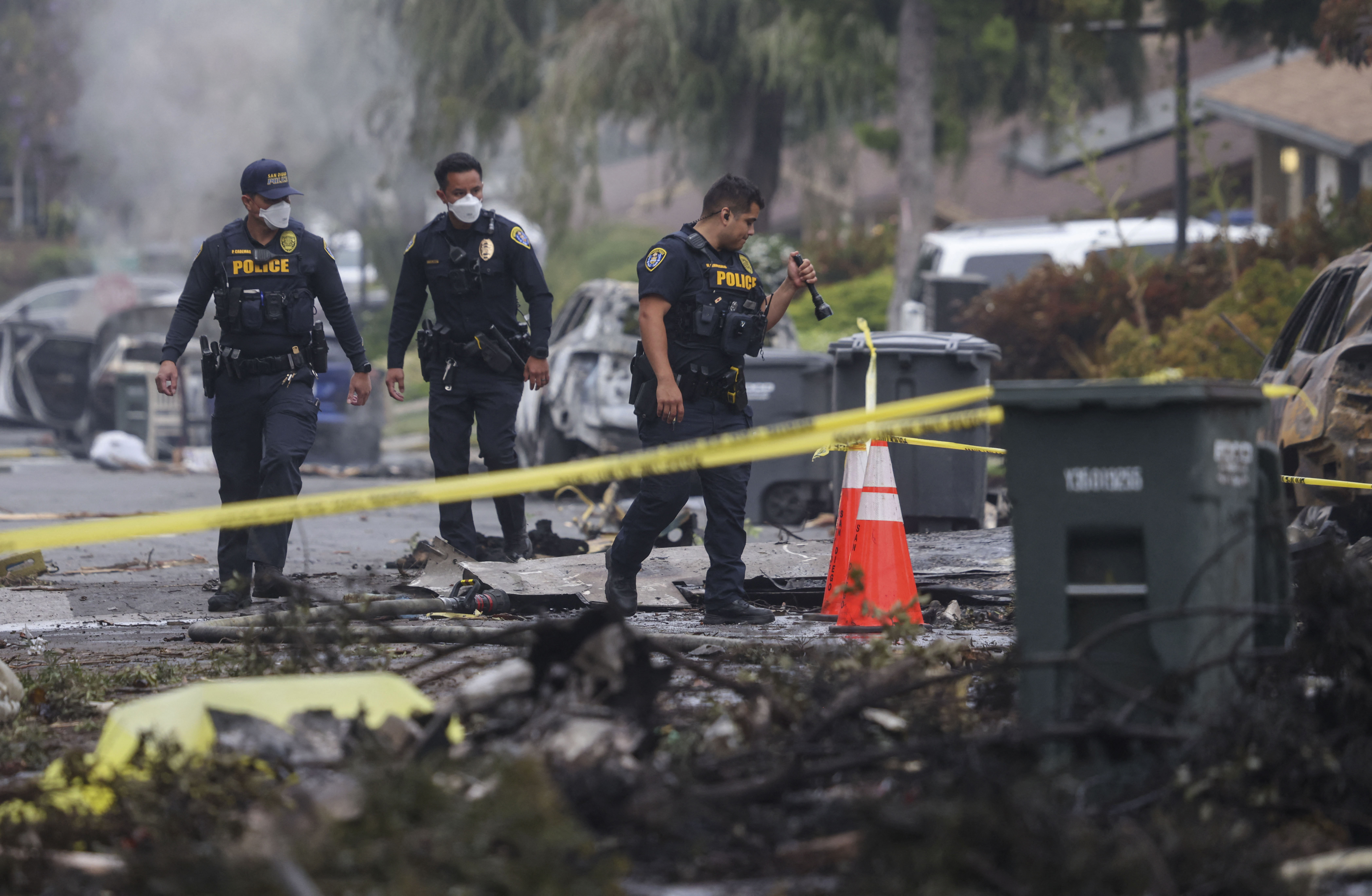A January immigration operation in Bakersfield sparked questions about what, exactly, federal agents can and can’t do, reports NBC 7’s Shelby Bremer.
A federal judge has prohibited the Border Patrol from detaining people without reasonable suspicion in parts of California as part of a lawsuit filed in the wake of a large-scale enforcement operation in Bakersfield in January.
The judge’s order, which was issued Tuesday, includes a preliminary injunction that bars the agency from making stops without reasonable suspicion and from making warrantless arrests without probable cause in California’s Eastern District, which includes Kern County. That’s where Operation Return to Sender took place between Jan. 7-9.
Stream San Diego News for free, 24/7, wherever you are with NBC 7.
Agents from Border Patrol’s El Centro Sector – located in Imperial County – drove more than 300 miles north for the operation, which resulted in the arrests of 78 people. The judge’s order notes that the agency’s data on the operation stated agents did not know the criminal or immigration history of 77 of those individuals before the arrests.
“Border Patrol would pull people over, within 15 seconds of the encounter, would start smashing windows of the car,” said Franco Muzzio, an attorney representing five individuals as well as United Farm Workers in the federal suit. “If people didn't immediately roll down the window, they would slash tires. They ripped a grandmother from the car and threw her to the [ground].”
Get top local San Diego stories delivered to you every morning with our News Headlines newsletter.
The lawsuit alleges the agents violated the constitutional rights of those who were arrested.
“In a lot of these instances, we saw that the people that they were arresting or stopping were U.S. citizens, or they were legal permanent residents who had immigrant status to be here lawfully, and there was no basis for Border Patrol to be stopping them or harassing them or even questioning them,” Muzzio said. “And yet, because the policy was to target people that looked a certain type of way, people were getting stopped regardless of their immigration status.”
The judge’s order also requires any Border Patrol agent who makes a stop in the Eastern District to document the circumstances of the stop, including the agent’s reasonable suspicion. It also mandates that agents with the El Centro Sector be re-trained.
Local
Muzzio said the judge was clear and direct in her comments to Border Patrol during a hearing on the matter Monday.
“She said something along the lines of, ‘You can't just go up to a Brown person and say, 'Show me your papers,' because of the color of their skin,” Muzzio said.
When asked for comment, Customs and Border Protection said the agency does not comment on pending litigation.
While the order and the injunction apply only in California’s Eastern District, the ACLU Foundation of San Diego and Imperial Counties, which also filed the suit, said it has much broader implications.
“This type of order and this case will ensure that regardless of where Border Patrol and similar agencies are stationed, that they actually abide by the law,” ACLU attorney Briza Velazquez said. “Law enforcement agencies are not above the law. We have the Constitution and we all have rights that apply to us, regardless of our skin color.”
“I don't think that this should be seen as an immigrant rights lawsuit — this is a civil-rights lawsuit,” Muzzio added. “When you start having federal agents target you based on your appearance, there's no limitation on that, regardless of immigration status.
“Once people's rights start to be violated based on arbitrary reasons, there's nothing that can stop those sort of practices from extending to anyone."
The case will next be before a judge on June 4.



